Review : Lexus RX UX30 ( 2003 – 2008 )

Lexus RX UX30, the official soccermom mobile for the Karen who had a lot of money in 2010, and I mean alot. But is it worth it to buy one in this day and age, us as ordinary mortals?
The Lexus RX UX30 is a more exquisite car than Nick Offerman‘s tastes in the fine drinks he advertises. Launched in 2003 as a continuation of the first almost-SUV from Lexus, the Lexus RX UX30 was and remains an exclusive curiosity for people with lots and lots of money, but who don’t want to shout out their wealth everywhere. It’s enough to see one of these cars today in traffic and realize that there’s someone you don’t want to mess with behind the wheel, and it’s not just the impression of it. Not the kind of person who chose other paths in life, for them the likes of the BMW X5, Range Rover, Audi Q7, Mercedes ML and Porsche Cayenne were invented. No, when you see a Lexus RX you know it’s someone’s really shady.
And Lexus RX UX30 knew exactly it’s customer base. The original RX was a on-road car with off-road capabilities and the Lexus RX UX30 took it one step further. The Lexus RX is one of the worst cars in its class when it comes to off-roading, but this is because Lexus knows that the typical RX owner will rarely if ever go off-roading. What the typical RX owner wants instead is luxury over luxury and total reliability, because the Lexus brand was built on this basis, a brand that was only born in 1989.
And how did the second generation Lexus RX manage to catch our eye and lots of our money?
Enter the first luxury SUV mainstream hybrid. Lexus RX400h. Acres of leather, wood and technology. Low tax. Amazing fuel economy for its 8000 pounds. A look that screams “Move over, poor person”. And some scores that guaranteed 100% that poor people will stay away from Lexus RX.
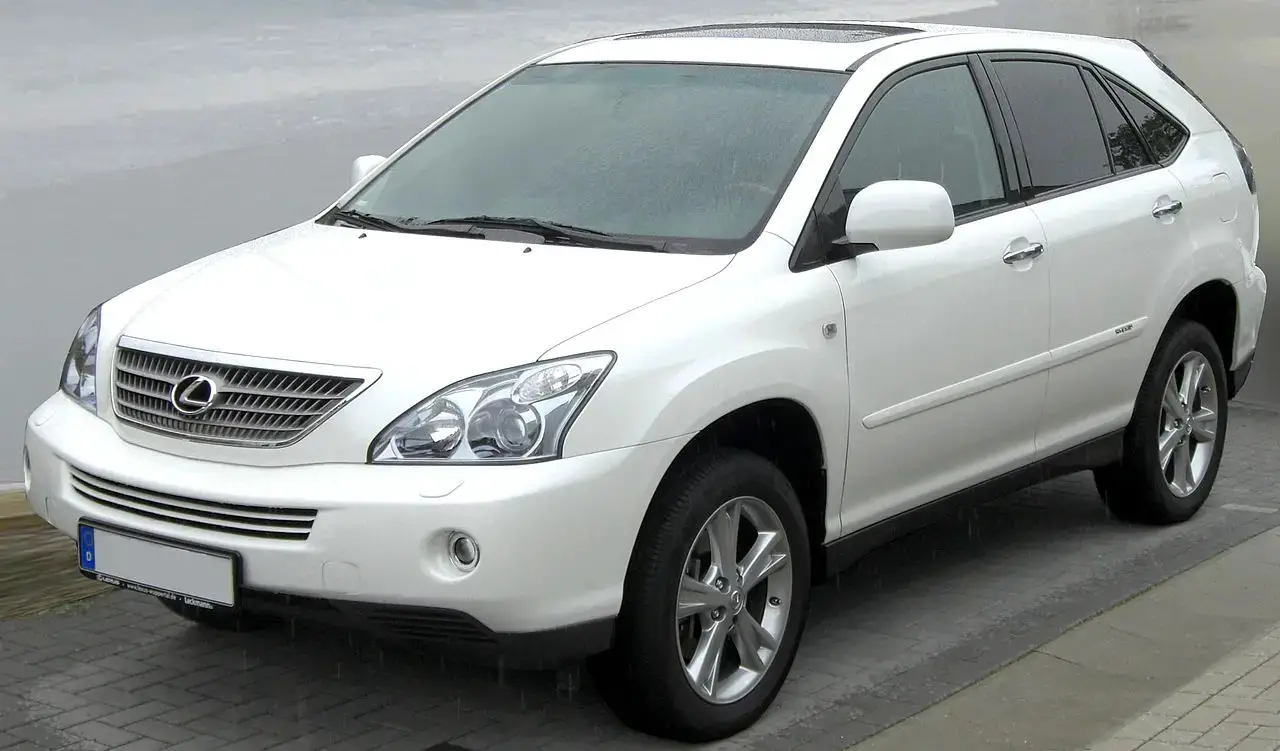
Lexus RX UX30 Engines
Petrol
- 2.4 l-4 AZ-FE of 156 horsepower – Carried over from the previous RX, this 4 cylinder engine was the entry level for Japan but I wouldn’t recommend it and you wouldn’t find it anyway. And because nobody wanted it, it just drinks it’s sorrows away with engine oil.
- 3.3 V6 1MZ-FE of 220 horsepower – Likewise, the 3.3 V6 was the village bicycle of the Toyota North America world and it was the basis of the hybrid aswell. The Lexus RX330 is reliable but pay attention to the oil consumption issues which develop later in life and the fact that the engine block cannot be repaired if it cracks due to overheating, so you’ll have to either keep it in working temperature at all time, or buy a new one.
- 3.5 V6 2GR-FE of 270 horsepower – The top of the line naturally aspirated, non-hybrid engine for the Lexus is another anvil of an engine that requires just regular maintainance such as spark plugs, ignition coils and water pumps. Nothing to worry about really.
Hybrid
3.3 V6 3MZ-FE + electric engine of 270 horsepower combined – Right. The bombshell. The sensation. The first mainstream luxury SUV with a hybrid powertrain. Where to start. I’ve talked about the internal combustion engine already, but all the fun is with the electric engines. Yes, electric motors. Two on the front and one at the back, like the minivan. This means several things. The first is that the car has all-wheel drive and not a conventional 4×4 because the rear electric motor drives the rear wheelsand does not communicate with the front axle through a driveshaft, as with the conventional 4WD system mounted in the 3.5 V6 petrol version. The second interesting thing is that you have a crude start/stop system. In 2004. Basically, while you’re at a traffic light, the engine stops, but one of the front electric motors stays on so you can leave the traffic light. Which is all nice and gimmicky but all of this comes with a big downside in return – Toyota / Lexus offers a 10-year warranty for the electric drive train (batteries + motors), so from now on it’s a question of whether they will last much longer or not. Yes, if it is used for short distances from the city, then it is better to avoid the hybrid because the batteries will have a shorter life than Gordon Ramsay’s career in cocaine cooking.
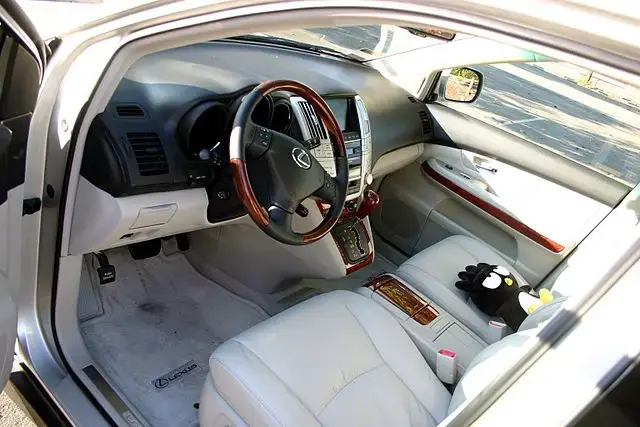
Lexus RX UX30 Reliability Issues
- Radar guided cruise control. Front and side curtain airbags. Air suspension. Dual zone climate control. Rear view camera. Rain sensors. Night sensors. Adaptive headlights. Tire pressure monitoring system. Need I say more? And think that all this was available in 2004. S Class levels of luxury. The less good part is that you have so many things that can fail the older they get.
- The paintwork is in line with Japanese trends and is more sensitive to the water jet than a college student.
- As it was with most luxury cars from it’s day, the air suspension was optional. The classic coil-over suspension is sturdy and cheapish to relace, but with the air suspension you must always set aside a pile of money for the inevitable moment it will give in.
- Non-hybrid versions have hydraulically assisted power steering (hybrids have electrically assisted power steering) and that means you have to keep your eye on the power steering fluid level constantly. You know how it goes, another steering box, another gasket, another pipe.
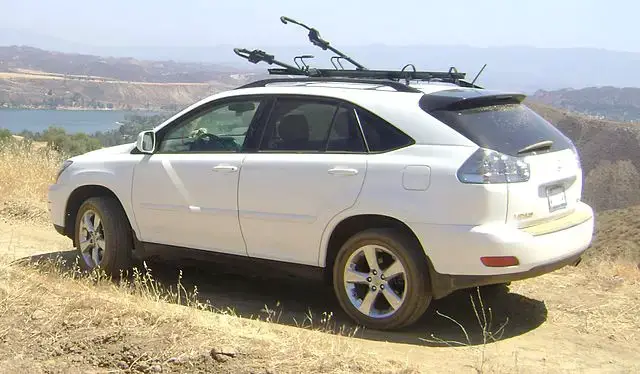
Lexus RX UX30 Verdict
It’s not as reliable as the first RX and there was no way it could’ve been. However, the list of issues is impressively short to the same extent that the list of features is impressively long. In fact, I would say how long it is, but the NSA comes and ties me up like a pig and takes me away. And that made the Lexus RX UX30 an exclusive car that you rarely see in traffic. Hellishly expensive to buy, quite cheap to maintain. Plus you also benefit from the exclusive Lexus treatment and have priority at any Toyota dealership where you go. If you can afford to service it at the dealership. In fact, you can afford it, ofcourse you can afford it. You own a Lexus.
Which engines do I recommend? The regular 3.3 V6 petrol 3MZ-FE is the best pick of the bunch, both in non-hybrid and hybrid guise.
Similar Articles
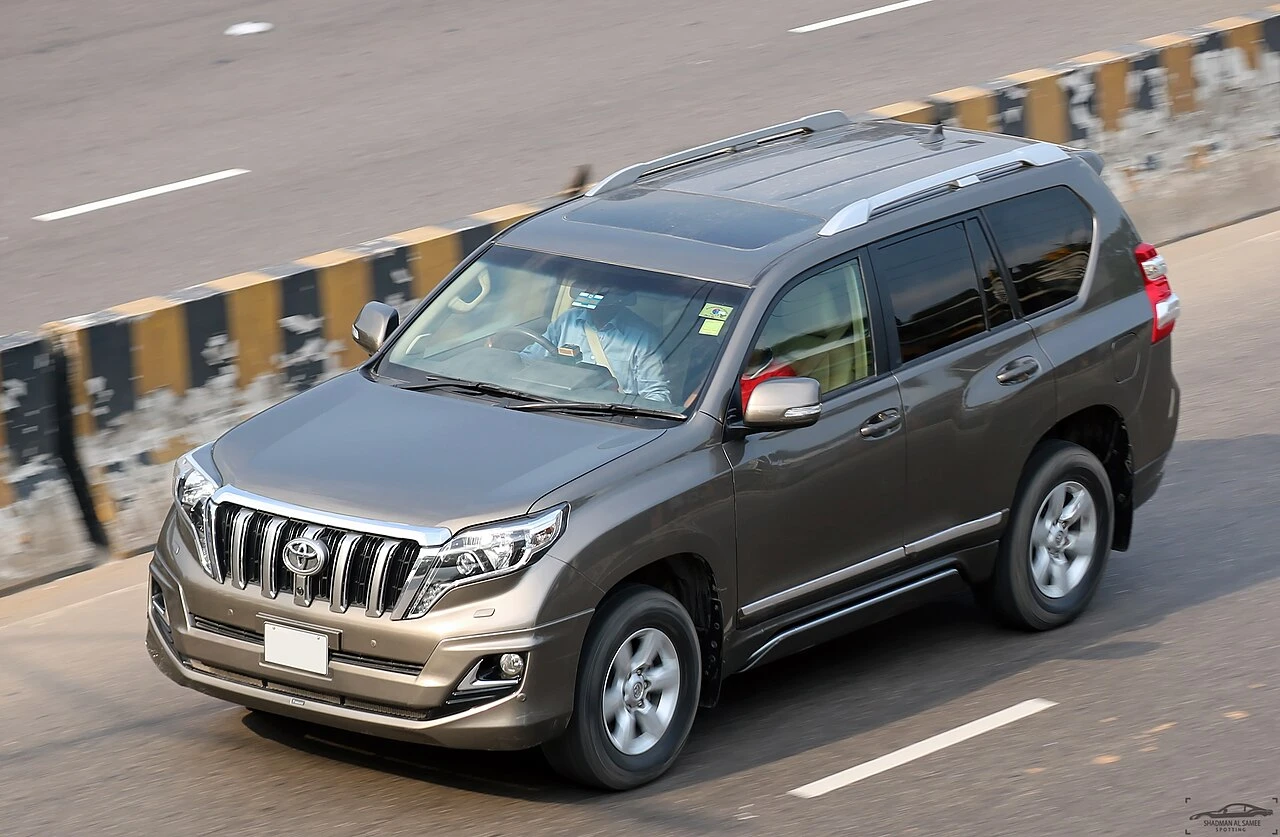
Review : Toyota Land Cruiser J150 ( 2009 - 2023 )
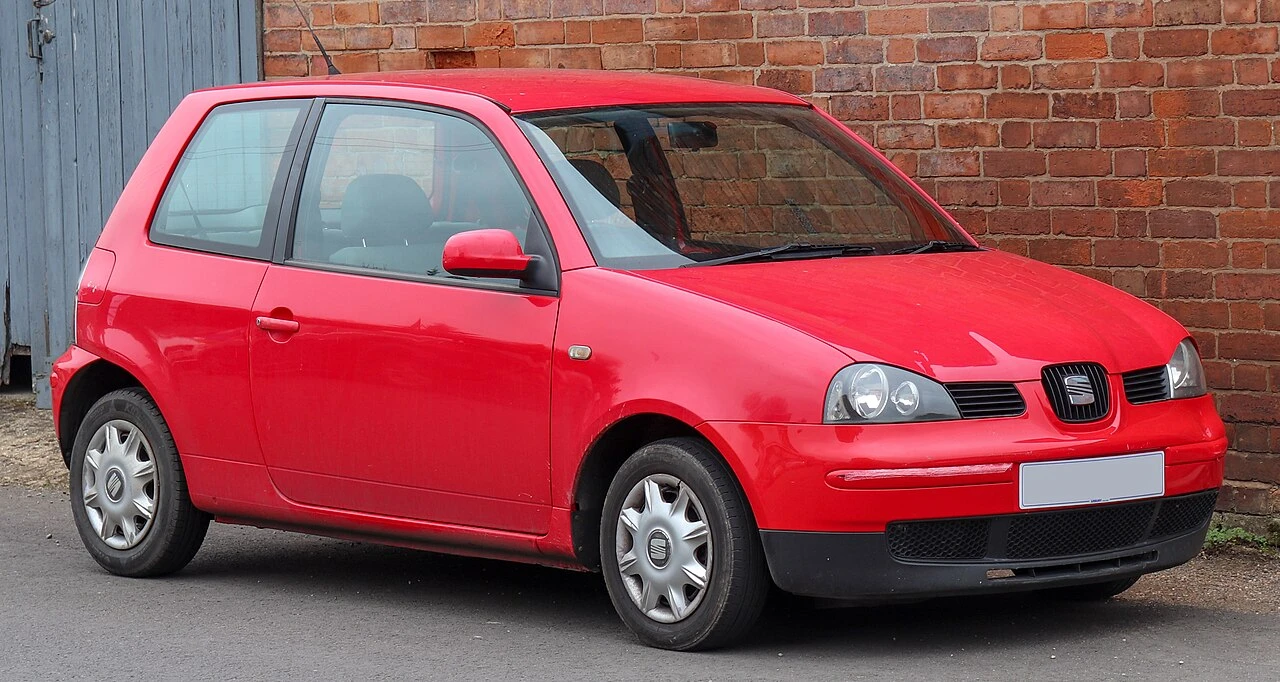
Review : Seat Arosa ( 1997 - 2004 )
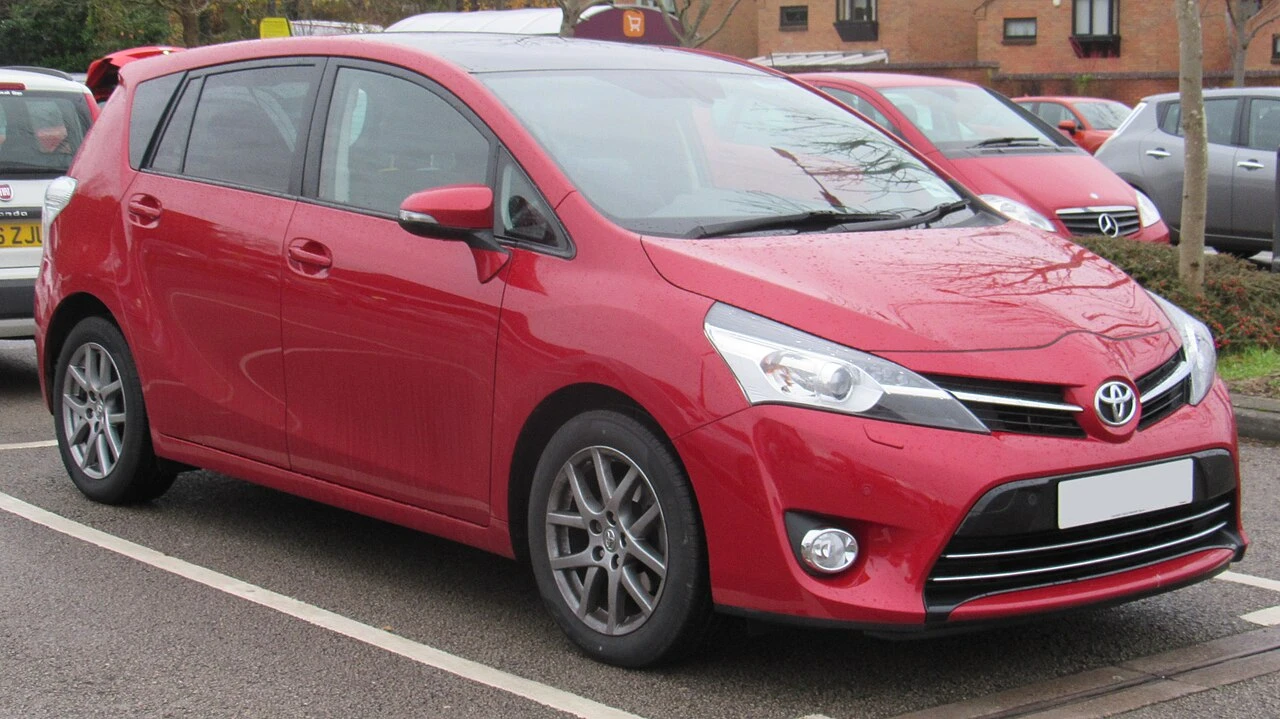
Review : Toyota Verso AR20 ( 2009 – 2013 )
Write an answer
- Review : Toyota Land Cruiser J150 ( 2009 - 2023 ) 15 December 2025
- Review : Seat Arosa ( 1997 - 2004 ) 01 October 2025
- Review : Toyota Verso AR20 ( 2009 – 2013 ) 10 November 2025
- December 2025
- November 2025
- October 2025
- August 2025
- July 2025
- April 2025
- March 2025
- February 2025
- January 2025
- December 2024
- November 2024
- October 2024
- August 2024
- July 2024
- June 2024
- May 2024
- April 2024
- March 2024
- February 2024
- January 2024
- December 2023
- November 2023
- October 2023
- September 2023
- August 2023
- July 2023
- June 2023
- May 2023
- April 2023
- March 2023
- February 2023
- January 2023
- December 2022
- November 2022
- October 2022
- September 2022
- August 2022
- July 2022
- June 2022
- May 2022
- March 2022
- April 2021
- January 2021
- December 2020
- November 2020
- October 2020
- September 2020
- August 2020
- July 2020
- March 2020